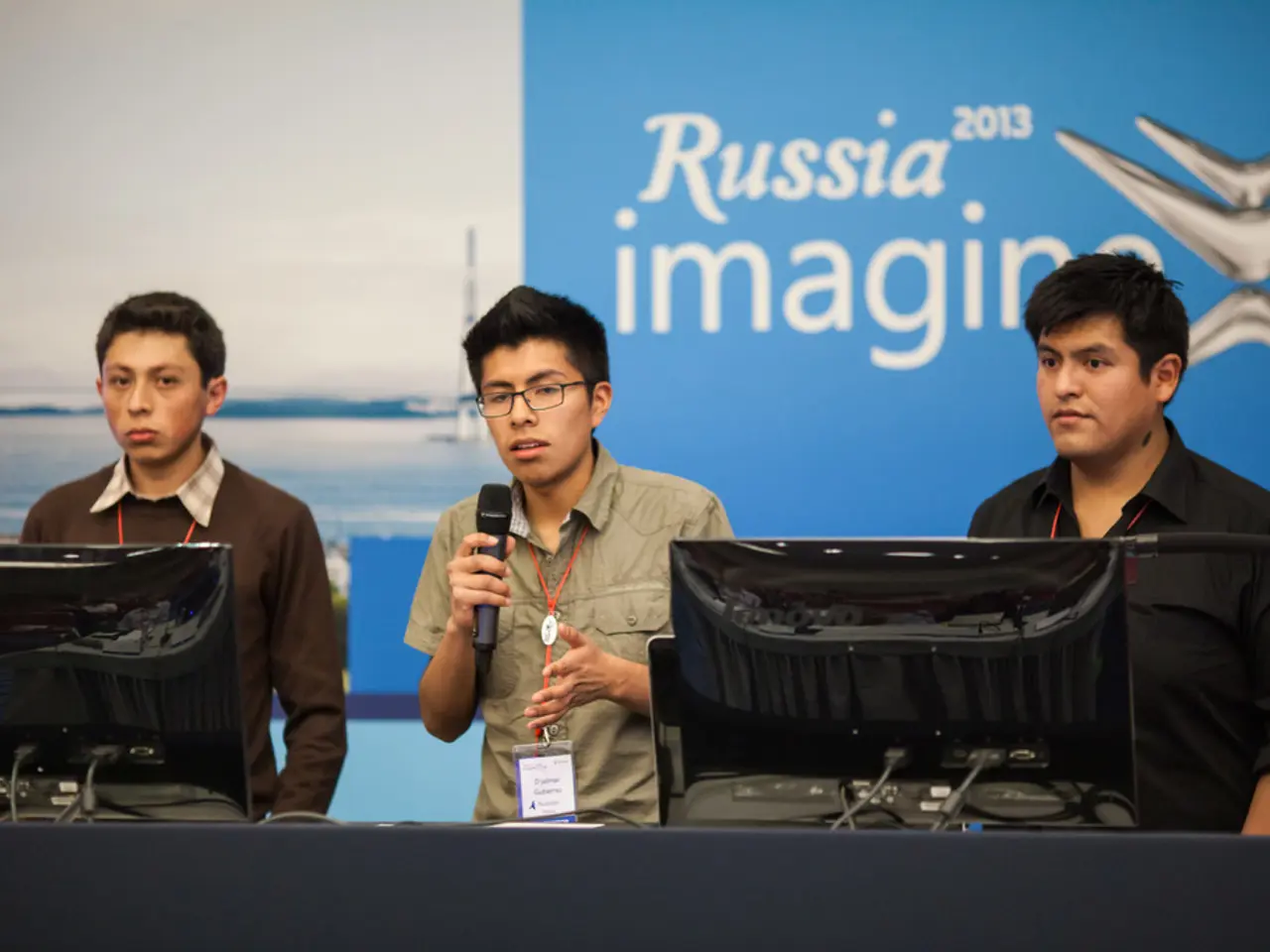Artificial Intelligence displacing workforce in the UK - study reveals findings
In a series of recent interviews, Bill Gates, the co-founder of Microsoft, has predicted that artificial intelligence (AI) will drastically change the global labor market over the next decade, potentially replacing roles in various sectors, including doctors and teachers in many specialties. This prediction is already being felt in the United Kingdom, where the number of vacancies in technology and finance has decreased by 38%, and companies are reducing hiring for positions potentially replaceable by AI.
According to reports, professions most affected by AI development in the UK over the next few years will primarily be those involving repetitive, process-based tasks. Conversely, new roles demanding AI collaboration, ethical oversight, and technical fluency will grow. Recruitment, HR, and tech-centric jobs will undergo significant transformation, requiring upskilling and adaptation to AI-enhanced workflows.
The total number of job postings online has decreased by 31% over the past three months compared to the same period in 2022. This decline has been most acutely felt in professions expected to change significantly due to artificial intelligence, such as programmers, management consultants, and graphic designers, where demand has fallen by more than 50% over the past three years.
While some experts believe that AI will help people work more efficiently, others, like Microsoft AI's general director, Mustafa Suleyman, warn of potential labor market instability and the possibility of AI replacing human labor. McKinsey's analysis showed that in professions considered highly susceptible to AI influence, there has been the sharpest decline in vacancies.
Changes in the labor market due to AI are happening quickly and could be frightening, according to Bill Gates. However, he sees many positive aspects in AI development, such as new disease treatments and solutions for combating climate change. He encourages young professionals to develop in the AI field, seeing it as an excellent opportunity.
Experts note that the development of technology is forcing companies to review their recruitment strategies and pause certain aspects of hiring. AI is reshaping recruitment roles in B2B SaaS and services sectors, with tasks such as market mapping, candidate sourcing, and assessment becoming largely automated. This shift is moving recruiters' roles towards more consultative, strategic, and relationship-focused functions.
Emerging and expanding roles include AI Project Managers, Human-AI Interaction Designers, AI Ethics Coordinators, and AI Training Specialists. These professionals will focus on integrating AI, ensuring ethical AI use, and optimizing collaboration between humans and AI systems. The workforce will increasingly need skills such as AI literacy, prompt engineering (communicating effectively with AI), human-AI workflow design, and AI ethics governance to stay relevant.
While about 85 million jobs may be displaced globally, including in the UK, about 97 million new jobs related to AI are forecast to be created by 2025, leading to a net positive job creation but with significant variation depending on sector and skill levels. This transformation promises a new era of "free intellect," where expert knowledge will become more widely available.
However, concerns about AI development, including its potential to make mistakes and contribute to the spread of misinformation, have been acknowledged by Bill Gates. As the AI revolution continues, it is essential for individuals and organisations to adapt and stay informed about the changing landscape of work.
[1] McKinsey & Company. (2021). Jobs lost, jobs gained: What the future of work will mean for jobs, skills, and wages. [2] World Economic Forum. (2021). The Future of Jobs Report 2020. [3] Burning Glass Technologies. (2021). The Future of Recruiting: How AI is Reshaping the Recruitment Landscape.
In this changing landscape, the rise of AI and technology is importantly impacting the business sector, with job postings for programmers, management consultants, and graphic designers experiencing a significant decline. Concurrently, there's an increasing demand for professionals equipped with skills in AI project management, human-AI interaction design, and AI ethics coordination, as the workforce transitions towards AI-enhanced workflows.
As the UK grapples with a shrinking labor market, potential new roles centering around ensuring ethical AI use, optimizing human-AI collaboration, and upskilling workshops for technological fluency could emerge, promising opportunities for those interested in education-and-self-development in the AI field.




